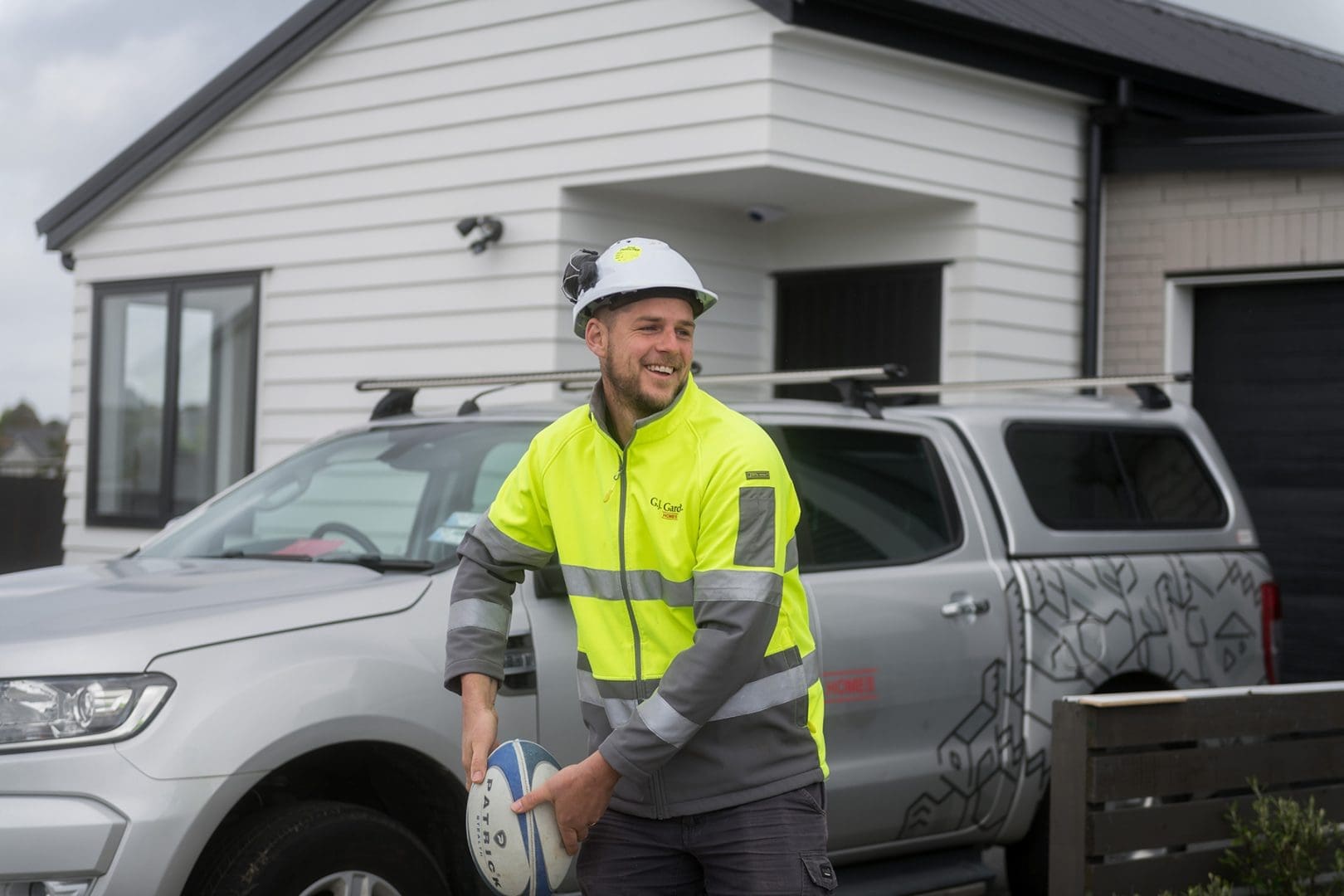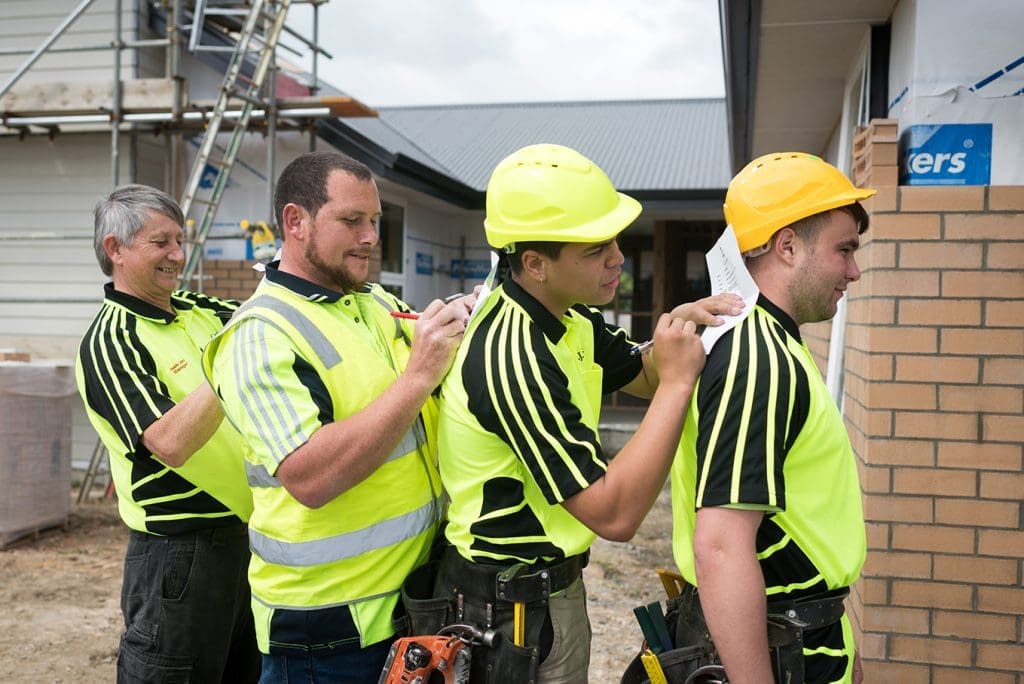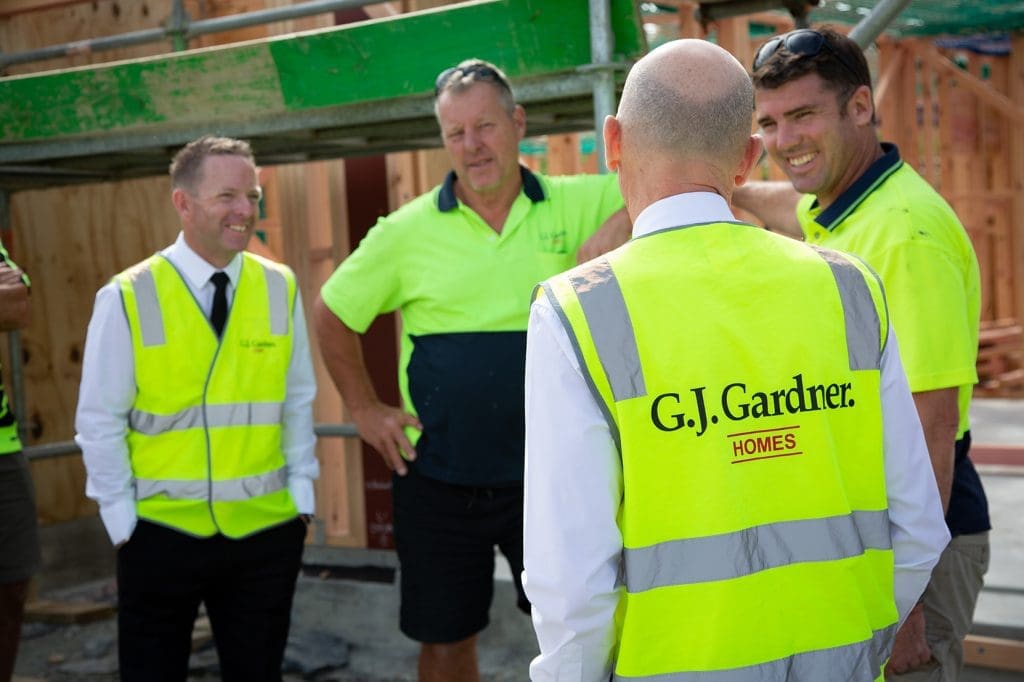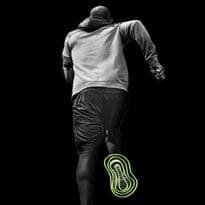Reconstructing Mental Health in Construction
At some point in their life, nearly one in two New Zealanders are likely to suffer from mental illness. All of us are likely to experience or witness mental illness at some time. Therefore it is important that we understand and recognise the signs in order to help. Especially when we consider the obvious challenges experienced in 2020, focussing on mental health and wellbeing is of great importance. The number of suicides has been increasing in NZ in recent years with men accounting for three out of four suicides. The construction industry in New Zealand has the highest number of suicides out of any other industry and with it being so skewed toward males, there seems to be an underlying problem in our masculine culture and community.
In the effort to shift the trend in the industry, G.J Gardner is proud to be partnering with MATES in Construction. Over 7,000 people will benefit from the programme designed to support workplace mental health, wellbeing & suicide prevention, established through the partnership. The MATES in Construction programme is conducted onsite and is about encouraging construction workers and staff to look after each other, seek, offer, and accept help when it is needed.
“As a business and organisation, we care about our people, that they are safe in their work environment, that they return to family and loved ones at the end of each working day and that they are in a stable state to return to work the following day.
Some people find it difficult to have a conversation or share what is troubling them which is why this new partnership with MATES in Construction is so important. It means that all of our offices and build sites will have the necessary support and on the job training to raise awareness of mental health issues in the workplace” – Ellie Porteous, Managing Director of G.J. Gardner Homes.
Last year 654 people died because of suicide, with our Māori and Pasifika population overrepresented in the numbers, a demographic heavily represented across the construction industry. MATES in Construction CEO Victoria McArthur says expanding the programme to GJ’s will see more support for workers who are at high risk. Working with GJ’s, we will be able to reach into these communities through their sub-contractors and suppliers to create a more supportive construction community.
“Construction workers have the highest suicide rate of any industry – we are losing roughly one person a week on average. Part of this is that the people in our industry tend to be men for whom talking about this stuff might not come naturally.
MATES in Construction is about putting onsite programmes in place, led by people who have worked in the industry and who come from the tools. It’s about building capacity through a supportive culture where we look after our mates, we keep an eye on each other and where people know they can speak up if they need extra help.” – Victoria McArthur, MATES in Construction CEO
The MATES programme focuses on opening communication channels, changing on-site culture and improving knowledge of what can be done to prevent suicide. It starts with a one-hour General Awareness induction for all workers on a site, providing the skills to help workers start discussions with someone who may be struggling on-site or even in their community. Volunteers can also be trained as Connectors (trained to help keep someone in crisis safe, while at the same time connecting them to professional help), with some also receiving ASIST advanced intervention training.
GJ’s goal along with MATES in Construction is to support workplace mental health, wellbeing and suicide prevention, to ultimately help reduce the suicide rate in the NZ construction industry.
Get Involved
Patchy, lopsided, itchy or epic – whatever Mo you grow this Movember, your face will raise funds and awareness for men’s health.
Host A Mo-ment
Rally a crew and do something fun and easy, virtual or in person. Hosting is all about having a good time for a good cause.
Make a Move
Run or walk 60km over the month. That’s 60km for the 60 men we lose to suicide each hour, every hour across the world.







